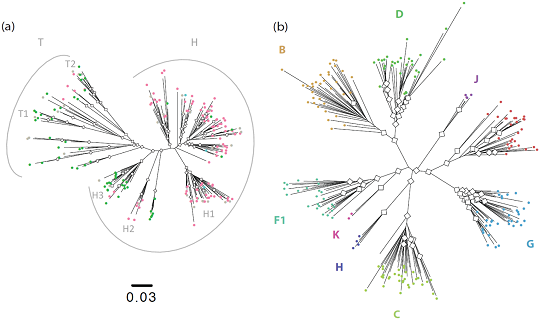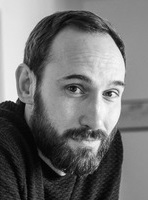Tracing epidemics in an African Anthropocene: Combining molecular phylogeny and social anthropology in Eastern Cameroon
My presentation will revisit my recent anthropological fieldwork in Eastern Cameroon and engage a conversation with the theory and the results of molecular phylogeny. This approach, used in « real-time » and as a form of historical knowledge, consists in the reconstitution of evolutionary relations among pathogens populations, based on their genetic sequences.
The region of East Cameroon is known as the “birthplace” of HIV; it is considered as a key site for global health security, where the emergence of pathogens from animal reservoirs should be monitored and contained. My aim is to offer a new perspective, beyond classic narratives describing (and anticipating) emergence as the result of pathological transgressions – of species barriers and of political borders.

Firstly, I propose to recast the apparently exceptional history of HIV in a much wider ecological crisis which began in the late 19th century with the colonial rubber boom, and which led to the emergence of multiple pathogens (including trypanosomes, Hepatitis C virus and mycobacterias) – as recent phylogenetic research reveals. Together theses pathogens can be understood as ruins of colonialism and capitalism: as biological traces of the central-African Anthropocene, revealing broader ruderal ecologies (from the latin word rudus, for rubble).
Secondly, I will discuss what it might mean to trace the material presences of the past in landscapes, infrastructures and bodies – and in the genomes of the pathogens themselves, using phylogenetic approaches to work towards a molecular archaeology of the Anthropocene.

About Guillaume Lachenal
Guillaume Lachenal is Associate Professor in History of Science at the Université Paris Diderot (France). He works on medical science in Africa, from the colonial times to the age of global health.
A light refreshment will be served, please register:
About this seminar
The seminar is co-organized as part of two seminar series:
- The SAI African Anthropology Seminar, organized by the Department of Social Anthropology
- Global Health Unpacked, a joint collaboration between the Centre for Global Health and the Centre for Development and Environments (SUM).
